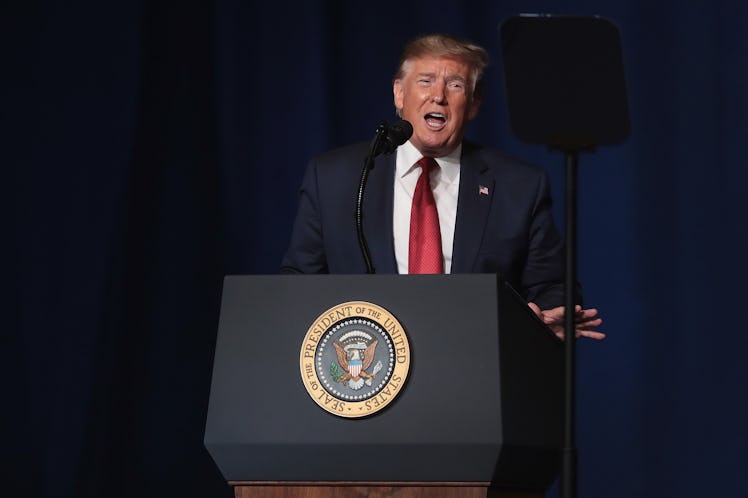
This Electoral College Ruling Could Mean Big Things In 2020
The 2020 election is coming up, so it's time to start thinking about voting — and everything that comes with it. On Aug. 20, 2019, a federal court of appeals made a major ruling on how election votes can be counted, when they ruled that faithless electors can vote with their conscience. But what is a faithless elector, and what does this ruling mean for future elections? Well, let's just say we may be talking about it for awhile.
This week, the United States Court of Appeals for the 10th Circuit in Denver ruled that it was unconstitutional for Colorado to throw out the vote of a "faithless elector," a member of the Electoral College who does not vote for the presidential candidate that they pledged to vote for. In the United States, presidential elections are decided not by popular vote but by the Electoral College, a system in which each state has an allotted number of votes cast by "electors," and the winner of the majority of those 538 votes wins the presidential election. Usually, those electors are obligated to cast their vote in accordance with who won the popular vote in their state, but sometimes, electors will break the rules. The Aug. 20 ruling came in the case of an elector from Colorado, who was replaced after he declined to cast his vote for Hillary Clinton, who carried the state.
“The text of the Constitution makes clear that states do not have the constitutional authority to interfere with presidential electors who exercise their constitutional right to vote for the president and vice president candidates of their choice,” the court majority wrote in its ruling, per The New York Times.
This ruling could have major implications for future elections, especially at a time when many Democratic lawmakers have called for the Electoral College system to be scrapped. According to NBC News, this week's ruling could potentially give a single elector the power to decide the outcome of a presidential election. Imagine, for example, that the 2020 presidential election yields a popular vote that results in an apparent Electoral College tie. If faithless electors are able to vote however they please, an elector in a state carried by the Democratic candidate could vote for the Republican candidate instead, effectively determining who will win the election. Most states currently use a winner-take-all method, which means that the candidate who wins a state's popular vote typically receives all of the electoral votes for that state as well. According to FiveThirtyEight, Nebraska and Maine are the only two states that allow electors to split their votes between candidates.
Faithless electors haven't posed a serious problem in the past because, as NBC News pointed out, states have typically tossed out ballots from electors who declined to follow what the majority of voters in their state wanted. However, the federal appeals court's ruling could prevent states from doing that in the future, making it a much bigger issue.
This does not, however, meant the ruling is the end of the road for this issue. According to The New York Times, Equal Citizens — the group that brought the case before the appeals court — wants the Supreme Court to rule one way or another on the issue of faithless electors, in order to avert a potential constitutional crisis in the event of a tie in the Electoral College. But if such a tie were to take place, this new ruling could potentially give electors the power to decide an election, rather then voters.
Because of the electoral college system, it's possible to win the national popular vote, but still lose the election. During the 2000 presidential election, Al Gore won the popular vote but lost the election to George W. Bush by a mere five electoral votes. In 2016, Clinton won the popular vote by nearly three million votes, but lost the election to Trump by nearly 80 electoral votes. Since Clinton's loss in 2016, several states have passed laws to award their electoral votes to the winner of the national popular vote — not the state popular vote — in order to counterbalance what some see as an unfair voting structure. These actions would go into effect once enough states had signed on to hit the 270 electoral vote threshold for victory.
The movement to do away with the Electoral College's influence doesn't stop there. Indeed, multiple Democratic presidential candidates, such as Massachusetts Sen. Elizabeth Warren and Vermont Sen. Bernie Sanders, want to eliminate the Electoral College altogether. They have expressed concern that the Electoral College inadvertently gives less populated states more weight in presidential elections, making voters in more populous states feel as though their votes don't count.
As the 2020 presidential election draws closer, this much is clear: The fight over the Electoral College's influence is only just beginning. This election cycle is going to be a wild ride in more ways than one.